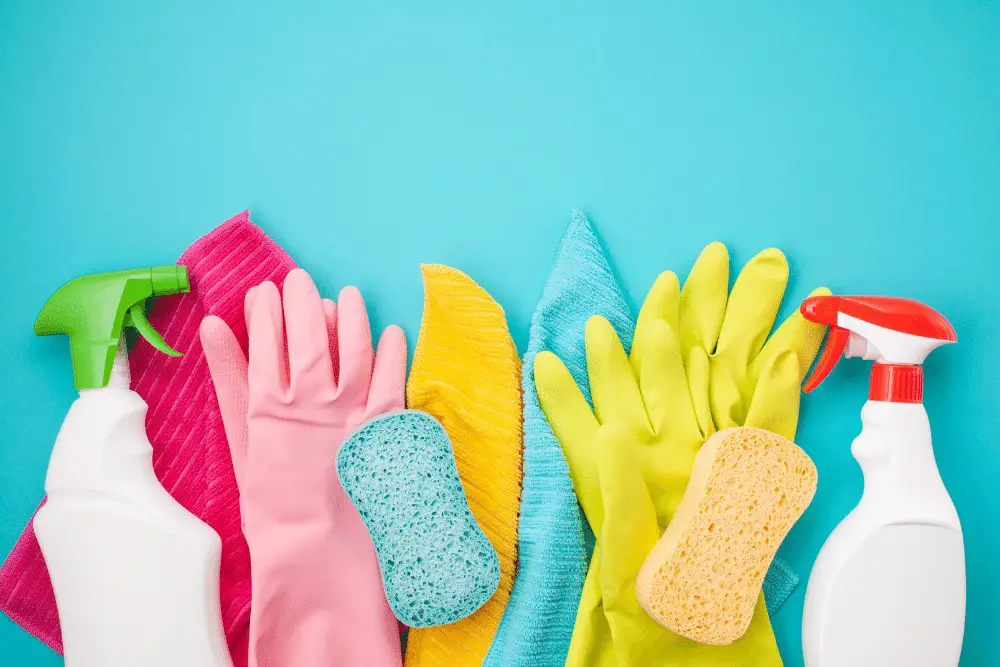Have you noticed your piano looking a little sad and dirty lately?
Are you afraid to damage your instrument by cleaning it the wrong way?
If you think that your piano is too old for playing anymore, it is probably time to clean it.
It would help if you thoroughly cleaned your piano at least once a year to avoid deterioration.
Even if it is just a few years old, certain signs are crucial to consider.
Proper maintenance can make a big difference in how well your piano holds up over time.
This is why it’s critical to know how to clean piano keys.
Cleaning piano keys takes several steps and may use different methods. All of them need to be safe to use for piano and involve removing dust and then safely disinfecting the keys of germs and other debris.
Check out the different methods in this article.
Table of Contents
6 Different Methods For Cleaning Piano Keys
Pianos are a blast, and learning how to play is a rewarding pastime.
If you need help learning piano, check out Flowkey.
Even as a piano player and music teacher, I’m blown away by the massive song list and helpful learning tools.
Check it out for free at the link above.
Cleaning The Dust Off Of Piano Surfaces
You should always gently dust your piano with a feather duster after you’ve finished playing.
Using a feather duster helps to maintain your piano’s appearance easily.
It is the best item to use to avoid scratching or dinging your instrument.
If you want to make your piano look like it is brand new, you should use a soft cotton or flannel cloth to clean it.
One of the easiest solutions is using a microfiber cloth.
Dampen a microfiber cloth with lukewarm water and apply a little dishwashing liquid.
You should make sure you are using only lukewarm water to ensure that your microfiber cloth does not cause damage.
As a result, it will wash the cleaning agent away so that you can keep using the microfiber cloth without any problem.
I like to use this affordable MagicFiber cloth.
How to Disinfect Piano Keys
Disinfecting surfaces is a crucial part of cleaning instruments in 2020.
Scientists estimate that our hands harbor 1,500 bacteria per square centimeter of skin.
To prevent these germs from spreading, one must wipe down their instruments often before and after use.
Rubbing alcohol is a great cleaning agent to use on your piano keys.
Check out this all-natural rubbing alcohol by ArtNaturals.
Apply a few drops of rubbing alcohol on a clean, soft cloth to do a little cleaning on piano keys.
Once you are pretty happy with the results of cleaning the piano keys, re-wipe the keys again with a soft dry cloth.
Another easy way to ensure you get great results every time you clean a keyboard is by using diluted alcohol-based disinfectants.
If you don’t want to use diluted alcohol-based disinfectants, you can use vinegar.
Dilute 1 part white or apple cider vinegar with two parts water to wipe down the instrument.
The acidity of the apple cider removes any grease or dirt sticking around the keys.
I would also recommend that you NOT use products containing citrus or bleach-based disinfectants.
How To Clean Piano Keys Using Windex
Stubborn grease and dirt is a common nightmare for piano owners.
A fitting solution for this would be mild dishwashing liquid on the damp cloth.
Be sure to use a small amount of water-soluble detergent.
Water tends to make the keys clean.
It does nothing to remove the mineral build-up that occurs over time.
High-quality spray cleaners such as Windex can get you great results.
Never use oil, solvent, alcohol, abrasive, or silicone-based polishes or cleaners on piano keys made from bone, ivory, or celluloid.
Also, make sure you use a lightly dampened cloth since excessive wetness can damage your piano.
How To Clean Piano Keys Made Of Ivory
The first step to cleaning ivory keys is finding out whether your keys are ivory or not.
People with musical experience know that ivory piano keys contain three pieces–key, stem, and front.
On the other hand, plastic keytops only have a top and front. If you know what to look for, you will notice the section between the keytop and the stem.
That fine line is the joint that confirms if your keys are ivory or not.
Cleaning real ivory keys with toothpaste is a quick and easy way to restore your favorite ivory keys to “like new” condition.
Although this is a relatively simple process, it can be difficult to perform safely.
With the appropriate measures, you can perform this process efficiently and with little risk of injury.
The most effective way to clean ivory keys without causing any damage is by using plain toothpaste.
You can squeeze the toothpaste into the keys’ hammers and wipe away with a piece of soft cloth or cotton ball.
This method will work well when cleaning both antique ivory and modern keys.
You can also try using the cleaner with white vinegar for antique ivory.
Caution: Don’t use gel and colored toothpaste; they can leave ivory keys corroded and discolored.
How To Clean Fingerprints Off Black Piano Keys
Plastic keyboard keys will tend to become discolored if repeatedly exposed to sunlight.
To maintain their original color and extend their life, clean them every time you’re not using them.
It would help if you washed black keys with plain water.
Be sure to clean plastic keyboard keys when not in use, and store plastic keyboard keys safely.
You can clean fingerprints off a black piano top when not in use.
However, to keep the original color, you will need a protective layer of varnish or some equivalent covering.
A thin layer of varnish is sufficient to achieve this.
Following this advice will ensure your piano remains in good condition for a long time to come.
How To Clean Inside Of A Piano
It is first essential to know what happens to the piano’s internal parts to determine how often a piano needs cleaning.
Every time a piano strikes a note, it makes a resonating sound heard when those musical notes play through a speaker.
That sound, of course, consists of sounds that come in different pitches and rhythms.
When these notes strike each other simultaneously, the result can create a virtual cacophony.
When it comes to playing a grand piano, the fingering and arrangement should always be of top quality.
Keep this complex instrument playing like new by adequately lubricating your piano’s strings with oil.
This action keeps them from building up dust and rust over frequent use.
Final Thoughts
Mixing any type of solution can be harmful or cause unexpected skin reactions.
Use equipment such as safety glasses, rubber gloves, and a bucket when applying each method.
Hopefully, this article has helped teach you how to clean piano keys with ease.

